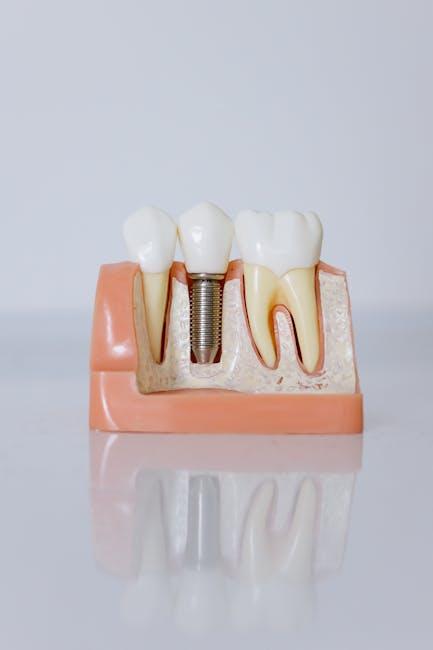
An Analysis of the Clinical Appropriateness of Out-of-Hours Emergency Dental Prescribing of Antibiotics in Northern Ireland
Published in the British Dental Journal – Nature
Out-of-hours (OOH) emergency dental care is a crucial service that ensures patients receive timely attention during dental crises. However, the prescribing of antibiotics during these periods must be clinically appropriate to prevent antibiotic resistance and promote optimal patient outcomes. This article offers a comprehensive analysis of the clinical appropriateness of out-of-hours emergency dental prescribing of antibiotics in Northern Ireland, based on findings and discussions from the British Dental Journal – Nature.
Understanding Out-of-Hours Emergency Dental Prescribing
Out-of-hours emergency dental services typically operate outside normal business hours, addressing acute dental pain, infection, or trauma. Prescribing antibiotics during these times is common but should always adhere to established clinical guidelines. Inappropriate antibiotic use not only risks patient health but contributes to the broader public health crisis of antibiotic resistance.
Key Goals of Appropriate Antibiotic Prescribing
- Treating true bacterial infections effectively
- Avoiding unnecessary antibiotic use for non-bacterial dental conditions
- Supporting antibiotic stewardship to combat resistance
- Ensuring patient safety and symptom relief during emergency care
Clinical Insights from Northern Ireland’s OOH Antibiotic Prescribing Practices
A recent in-depth study published in the British Dental Journal examined dental antibiotic prescribing patterns in Northern Ireland’s out-of-hours services. The study reviewed over 1,500 emergency cases and assessed whether prescriptions aligned with clinical guidelines.
| Criteria | Percentage of Cases Meeting Criteria | Common Issues Identified |
|---|---|---|
| Confirmed bacterial infection diagnosis | 68% | Insufficient clinical examination documentation |
| Antibiotic prescribed per guidelines | 62% | Frequent use of broad-spectrum antibiotics |
| Antibiotic prescribed as sole treatment | 47% | Delayed definitive dental treatment |
| Adherence to recommended antibiotic duration | 75% | Occasional extended courses without necessity |
The data indicates a significant portion of antibiotic prescriptions during OOH care are not fully aligned with clinical guidelines. In particular, the reliance on antibiotics as a sole treatment highlights a clinical area for improvement, as many dental infections require procedural intervention beyond medication.
Factors Contributing to Inappropriate Prescribing in OOH Dental Services
Several factors explain the inappropriate use of antibiotics in out-of-hours dental settings:
- Limited access to definitive dental treatment: Dentists may prescribe antibiotics as a temporary measure when in-person interventions are delayed.
- Time pressure and case complexity: Emergency consultations can lack comprehensive evaluation due to limited time.
- Diagnostic uncertainty: Out-of-hours professionals may err on the side of caution by prescribing antibiotics even when infection is uncertain.
- Patient expectations for immediate relief: Pressure from patients seeking quick symptom management can influence prescribing decisions.
Benefits of Clinically Appropriate Antibiotic Prescribing
Ensuring antibiotics are prescribed appropriately during out-of-hours dental emergencies brings numerous benefits for both patients and the healthcare system:
- Reduces the risk of antibiotic resistance development
- Improves patient outcomes by focusing on necessary procedural treatment
- Decreases adverse drug reactions and unnecessary medication exposure
- Supports overall public health and antibiotic stewardship initiatives
- Enhances trust between patients and dental healthcare providers
Practical Tips for Dentists Prescribing Antibiotics Out-of-Hours
To improve antibiotic prescribing practices during out-of-hours emergency dental care, clinicians should consider the following practical strategies:
- Perform thorough assessments: Take detailed clinical histories and, when possible, make a direct clinical examination to confirm infection.
- Follow established guidelines: Adhere closely to national and local prescribing guidelines, such as those provided by the Faculty of Dental Surgery and Public Health agencies.
- Use antibiotics judiciously: Avoid using antibiotics as a sole treatment for non-infectious pain or cases amenable to procedural intervention.
- Educate patients: Communicate clearly about the role of antibiotics and the importance of follow-up care for definitive treatment.
- Keep prescriptions targeted: Prefer narrow-spectrum antibiotics over broad-spectrum agents unless clinically justified.
- Record accurately: Document rationale for antibiotic prescribing decisions comprehensively for audit and future reference.
Case Study: Managing Acute Dental Abscess Out-of-Hours
“Patient presented with severe localized swelling and pain at 11 PM. Clinical examination confirmed an acute dental abscess with systemic symptoms. Antibiotic therapy was initiated with amoxicillin, and arrangements were made for urgent in-hours drainage the following day.”
This case illustrates how antibiotics can be appropriately used as an adjunct to timely, definitive treatment rather than a stand-alone solution, ensuring both immediate relief and resolution of infection.
Conclusion
Out-of-hours emergency dental prescribing of antibiotics in Northern Ireland represents a critical component of urgent dental care. While antibiotics are an important tool in managing true infections, clinical appropriateness must be maintained to safeguard patient health and public safety. The analysis from the British Dental Journal highlights areas needing improvement, especially regarding antibiotic overuse and delayed definitive treatment. With targeted education, strict guideline adherence, and patient engagement, dental professionals can optimize antibiotic prescribing practices out-of-hours, enhancing outcomes and contributing to national antibiotic stewardship goals.
For dental practitioners and healthcare policy makers, these insights should act as a call to action to continuously refine emergency prescribing behaviors and advance the quality of out-of-hours dental care in Northern Ireland and beyond.


